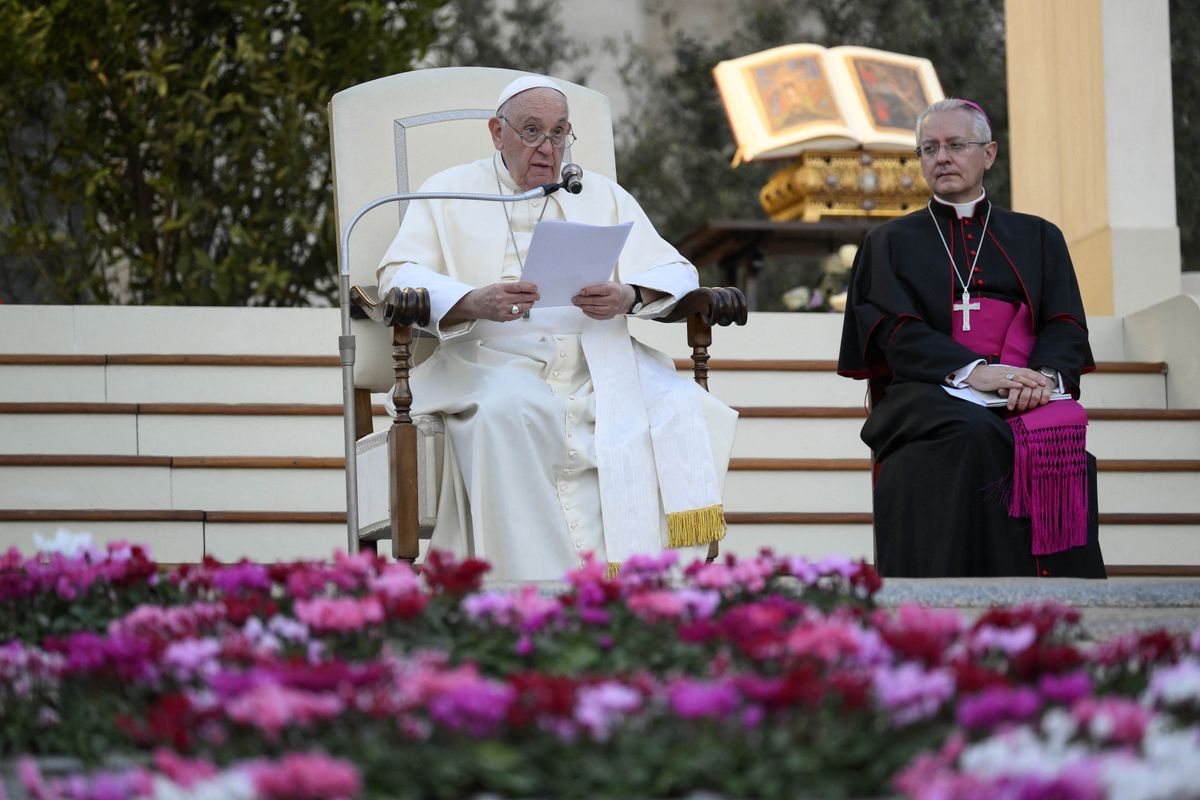On Wednesday, Pope Francis is convening a massive meeting of Church officials and ordinary Catholic faithful — including women for the first time ever — to discuss and vote on how the Church can find common ground on a number of divisive issues, from LGBTQ+ recognition to divorce to the role of women. It’s the first phase of a two-year process, which will culminate in another summit in Rome next year.
Why this is a big deal: Catholicism is the largest Christian denomination, with over 1.3 billion adherents, and it claims direct roots to Jesus Christ through his disciple Peter, considered the first Pope. The Church’s size and global nature mean its adherents hold a vast array of political and cultural beliefs, many of which are at loggerheads in the secular world. But the Church’s mission to serve all is embedded in the name: The Greek Katholikos literally means “universal.”
Francis’ leadership on social issues stands in stark contrast to that of his predecessor, Pope Benedict XVI. Benedict was among the most conservative Church leaders in recent memory, while Francis has consistently sought ways to reconcile evolving social mores with Catholic doctrine, though the two notably maintained a close relationship.
Inclusivity in focus: Church officials canvassed congregations for two years to set the agenda items, and the thread running through them is how to welcome Catholics whose backgrounds may once have precluded them from participating in worship. The subject of offering communion to people who have divorced their spouses will play a major role, as will discussions over whether women may hold some positions in the church, such as deacons.
One agenda item includes the bishops in Germany and Belgium who have been vocal about wanting representation for LGBTQ+ members and have begun allowing priests to bless same-sex couples. Societies where Catholicism is growing fastest, mostly in Africa and Asia, tend to take a more conservative view, as do traditionalists in Western countries. Making everyone happy will be tough and may come down to devilish details. Are the people involved blessed, but not the union itself, for example?
Pope Francis offered little clarity on his position, telling bishops they should treat requests for blessings with “pastoral charity” while reaffirming that he considered same-sex marriage “objectively sinful.”
Hashing it all out, which Francis is dedicated to doing, will take time – and critics accuse him of using calls for discussion as a means of delaying tough decisions. Formally, this assembly is titled a “Synod on Synodality” (theologian speak for a meeting about how we have meetings), which hints at the aspect of this assembly that may prove the most transformative: among the most representative body of Catholics ever assembled, both laypeople and clerics, discussing and voting on the future of their shared faith.






